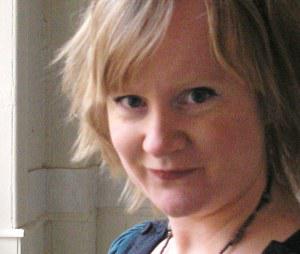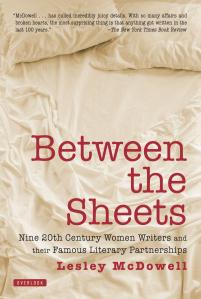 Last week’s post Literary Taste – Who’s to Judge? attracted a lot of interest and thought-provoking contributions from readers, including literary critic Lesley McDowell. Her comments made me want to understand the perspective of professional critics, so in the interests of balance, I invited Lesley to join me On the Literary Sofa:
Last week’s post Literary Taste – Who’s to Judge? attracted a lot of interest and thought-provoking contributions from readers, including literary critic Lesley McDowell. Her comments made me want to understand the perspective of professional critics, so in the interests of balance, I invited Lesley to join me On the Literary Sofa:
When Sir Peter Stothard said that “the role and the art of the (literary critic)” was being undermined by online bloggers, especially by what he felt were inferior reviews compared to those published in broadsheets, he touched a nerve. Are critics “just being submerged” by the sheer mass of opinion available online? And will this in turn“harm literature”, as he claimed?
I should be clear: I’m both a professional critic and a published author. The last thing I want is an end to blogs – as an author, that would be madness. I want as many people blogging, talking about, reading and buying as many books (preferably mine!) as possible. But there’s a problem, which I’ll come to.
If you’ll bear with me, I’ll explain about the day job first. In 1997, I was teaching English Literature at St Andrews University. A friend doing work experience at Scotland on Sunday overheard its literary editor, Rosemary Goring, saying she needed new reviewers. I needed cash, so I phoned Rosemary who gave me a try with Amy Bloom’s Love Invents Us – luckily, my flatmate had some of Bloom’s short stories and one of those formed the opening chapter to the novel. My review wasn’t based on taste – the kind of book I like or don’t like. I knew I had to assess the merits of this book, how well it had achieved what it had set out to achieve, what it did differently, or how it raised familiar aspects. I tried to make sure I took an angle on the book, too, so that I wasn’t simply summarising the plot. I’d never seen a short story used as a novel’s opening chapter before, and that seemed crucial to me. Rosemary was delighted – she was sure no-one else had spotted that.
After that, I reviewed regularly for her and loved it so much I left academia for freelance journalism. If I’d known what was ahead of me, I doubt I’d have done it. Cold-calls to unfriendly editors; trying to sell ideas and books to review on a daily basis; the rigours of deadlines, often at short notice; being edited and sub-edited; financial instability where a review commissioned in February appears in March which means payment in April (if nobody messes up – then it’s payment in May). I kept punting my stuff at London editors, too, and finally got to review regularly for the TLS and the Independent on Sunday.
Because I had a PhD in James Joyce and feminist theory, I used that feminist background to carve a niche for myself reviewing primarily books by women. I’d no chance of getting the latest Amis or Rushdie, they’re always reserved for men – Jodi Picoult is, alas, right about the gender bias of broadsheet reviews and this recent survey bore her out. But I got Carol Shields, Alice Munro, Jane Smiley, to myself. And I’ve been doing that ever since, as well as publishing short stories, a novel, a work of non-fiction, and winning arts council bursaries and getting shortlisted for literary awards.
That last part isn’t to boast – it’s to emphasise my credentials for the job I do, because I’m feeling it’s under threat. Some bloggers might not see themselves in competition with print reviewers, but many do – and as newspapers face cutbacks, more and more are looking for free content. Bloggers work largely for free – as a blogger myself, I know I do. I also know how much fun it is to write about whatever you like, for whatever audience, at whatever length you choose. I interview writers on my website – I don’t have to make a case for them to some editor, I don’t have to time things with book releases, I don’t have to ask searching questions if I don’t want to. I can please myself, a hugely appealing thing to do.
Less of the rigours of the broadsheets, then. Does that also mean worse writing, as Stothard says? And what of the “harm done to literature” by blogging? I know that blogs are essential for writers ignored by broadsheets – my boyfriend, Russel D McLean, writes hardboiled noir fiction, the kind no broadsheet will touch, so blogs get him coverage by experts in his field. Many of those blog reviews will be of an excellent standard, although I take issue with blogger John Self who recently wrote about this issue in The Guardian and mentioned several highly-rated blogging sites. They were all by men and all except one review predominantly books by men. Same problem as the broadsheets, then.
But there’s another problem. When so much talking is being done, something happens. It’s happening in the publishing world right now, and to me, it’s a result of increased discussion, and the standard that much of that discussion is pitched at. Publishers are increasingly emphasising the single-issue book, the book with a strong ‘what if’ that readers can talk about. It’s one reason Jodi Picoult is so popular – her books are classic ‘what ifs’ and they do make for great conversation and strong reactions from readers. New presses like Two Roads and Tinder Press are emphasising ‘strong stories well told’ from writers – that translates very often as precisely this kind of fiction.
But what if you’ve written a book that it isn’t easy to make a strong judgement about, or has no clear-cut issue to discuss? I’m not saying that blog reviewers only go for books like the kind I’ve just mentioned; what I’m saying is that the volume of discussion they generate, and often the kind of discussion, favours that kind of story. I know many writers whose work is being turned down by publishers because, even though editors have loved them, sales departments don’t know how to sell them. You have no issue in your book – so how do you generate blog interest? How do you get the conversation going, and in turn, generate sales? In the brave new publishing world, sales take precedence (it’s why so many authors are upset about fake reviews on Amazon – one star next to your book at point of sale can be hugely damaging to your sales figures. Imagine walking into Waterstones and seeing the book you want right next to the till, with a big sign above it saying ‘this book is rubbish.’ Would you still buy it?)

Between the Sheets: The Literary Liaisons of Nine 20th Century Women Writers by Lesley McDowell is published by Duckworth
Many thanks to Lesley for this stimulating – and possbily provocative - piece. Having run out of space here, I’ll give my reaction in the Comments below. Has reading this changed YOUR mind or made you think differently about the Bloggers v. Critics question?

